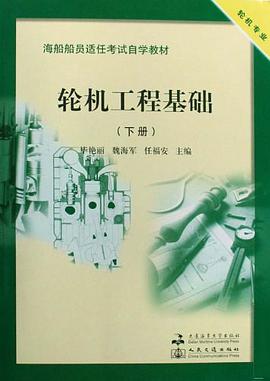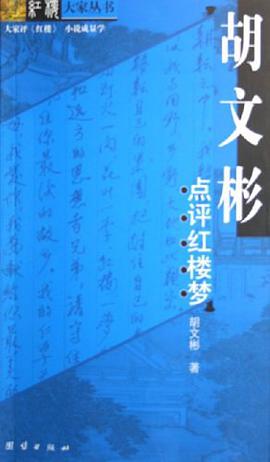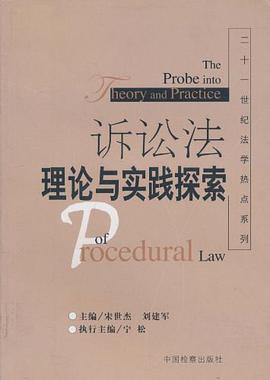

在线阅读本书
Book Description
In her new essay collection, the beloved author of High Tide in Tucson brings to us, out of one of history's darker moments, an extended love song to the world we still have.
Whether she is contemplating the Grand Canyon, her vegetable garden, motherhood, genetic engineering, or the future of a nation founded on the best of all human impulses, these essays are grounded in the author's belief that our largest problems have grown from the earth's remotest corners as well as our own backyards, and that answers may lie in both those places.
Sometimes grave, occasionally hilarious, and ultimately persuasive, Small Wonder is a hopeful examination of the people we seem to be, and what we might yet make of ourselves.
Amazon.com
Readers familiar with Barbara Kingsolver will find that Small Wonder, a collection of 23 essays, shows the same sensitivity and thoughtfulness, the same rich knowledge of and love for the natural world, as her spellbinding novels. In "Knowing Our Place," she describes the two places in which she writes: a tin-roof cabin in Appalachia and her home in the Tucson desert. In "Setting Free the Crabs," she uses her daughter's decision not to take home a beautiful (and occupied) red conch shell from a Mexican beach to illustrate our own need to give up our sense of ownership of the earth, to resist "the hunger to possess all things bright and beautiful." Many of these pieces, like the lovely title essay, were written (or rewritten) in response to the events of September 11, which threw into relief the growing social and economic inequities that are so little remarked on in the American media. These are political essays, although Kingsolver is not a natural rhetorician; her prose is too supple and inclusive. She is more inclined to follow the turns of her mind, like water in a curving stream bed, than to hammer home a point or two. But she has a rare gift for apt allusion (from sources as wide-ranging as Robert Frost to Beanie Babies) and for the elegant use of facts and figures. And she is highly quotable. It is easy to imagine the speechwriters and activists of the next 10 years dipping into Small Wonder for inspiration and the perfect phrase.
--Regina Marler
From Publishers Weekly
This book of essays by Kingsolver (The Poisonwood Bible, etc.) is like a visit from a cherished old friend. Conversation ranges from what Kingsolver ate on a trip to Japan to wonder over a news story about a she-bear who suckled a lost child to how it feels to be an American idealist living in a post-September 11 world. She tackles some sticky issues, among them the question of who is entitled to wave the American flag and why, and some possible reasons why our nation has been targeted for terror by angry fundamentalists and what we can do to ease our anxiety over the new reality while respecting the rest of planet Earth's inhabitants. Kingsolver has strong opinions, but has a gift for explaining what she thinks and how she arrived at her conclusions in a way that gives readers plenty of room to disagree comfortably. But Kingsolver's essays also reward her readers in other ways. As she puts it herself in "What Good Is a Story": "We are nothing if we can't respect our readers." Respect for the intelligence of her audience is apparent everywhere in this outstanding collection. Illus.
From Library Journal
Don't be misled by the foreword and opening subject in novelist and essayist Kingsolver's new collection: this work is not all about our continuing anguish over September ll. Some of the essays do concern themselves with that fateful day and her reactions to it, but most are pieces on varied subjects written since her 1995 collection High Tide in Tucson. Some have been published before, like the three little gems Kingsolver co-wrote with her husband, Steven Hopp. The topics range from television to the homeless, Columbine to problems of writing about sex, poetry to the meaning of the flag. Throughout, Kingsolver seamlessly combines the personal and the political. Thus, an essay about her daughter Lily's chickens comments on world agriculture; watching a hummingbird build its nest becomes a springboard for informed and impassioned thinking about evolution and genetic engineering. Recommended for most collections in both academic and public libraries.
Mary Paumier Jones, Westminster P.L., CO
From Booklist
Cherished novelist Kingsolver, author most recently of Prodigal Summer (2000), trusts in the power of the parable, an ancient and noble form that she uses with great skill and wisdom in her first essay collection since High Tide in Tucson (1995). This set of 19 penetrating autobiographical musings on humankind and how we treat each other and the rest of nature coalesced in the stunned aftermath of September 11. Grief, the struggle for understanding, and the recognition of the need for "reordered expectations" underlie each bracing reverie. Trained as a biologist and gifted in the art of storytelling, Kingsolver is able to draw on her knowledge of the wild--of evolution and biodiversity--as well as her feel for archetypes to bring into focus and dramatize the biological and social impact of our unexamined habits of consumption. Food, motherhood, gardening, literature, television, homelessness, globalization, scientific illiteracy, selfishness, and forgiveness all come under sharp and revelatory scrutiny. As does love of country: "Americans who read and think are patriots of the first order." Amen.
Donna Seaman
From AudioFile
Those familiar with Barbara Kingsolver's work are aware of her distinctive literary voice. In the audiobook version of her most recent collection of essays, listeners are also treated to her actual voice, and the result is pleasing. With beautiful language and heartbreaking turns of phrase, Kingsolver reflects on the world community and one's individual role in it. The author's actual voice is as thoughtful and quietly strong as her written voice, lending a certain calm to her thought-provoking commentary. Hearing a brilliant author read her own work is rewarding in this case. No matter what one thinks about Kingsolver's worldviews--she loves her country and sees its flaws as well--this audiobook is timely and interesting. L.B.F.
More About the Author
Barbara Kingsolver was born on April 8, 1955. She grew up "in the middle of an alfalfa field," in the part of eastern Kentucky that lies between the opulent horse farms and the impoverished coal fields. While her family has deep roots in the region, she never imagined staying there herself. "The options were limited--grow up to be a farmer or a farmer's wife."
Kingsolver has always been a storyteller: "I used to beg my mother to let me tell her a bedtime story." As a child, she wrote stories and essays and, beginning at the age of eight, kept a journal religiously. Still, it never occurred to Kingsolver that she could become a professional writer. Growing up in a rural place, where work centered mainly on survival, writing didn't seem to be a practical career choice. Besides, the writers she read, she once explained, "were mostly old, dead men. It was inconceivable that I might grow up to be one of those myself . . . "
Kingsolver left Kentucky to attend DePauw University in Indiana, where she majored in biology. She also took one creative writing course, and became active in the last anti-Vietnam War protests. After graduating in 1977, Kingsolver lived and worked in widely scattered places. In the early eighties, she pursued graduate studies in biology and ecology at the University of Arizona in Tucson, where she received a Masters of Science degree. She also enrolled in a writing class taught by author Francine Prose, whose work Kingsolver admires.
Kingsolver's fiction is rich with the language and imagery of her native Kentucky. But when she first left home, she says, "I lost my accent . . . [P]eople made terrible fun of me for the way I used to talk, so I gave it up slowly and became something else." During her years in school and two years spent living in Greece and France she supported herself in a variety of jobs: as an archaeologist, copy editor, X-ray technician, housecleaner, biological researcher and translator of medical documents. After graduate school, a position as a science writer for the University of Arizona soon led her into feature writing for journals and newspapers. Her numerous articles have appeared in a variety of publications, including The Nation, The New York Times, and Smithsonian, and many of them are included in the collection, High Tide in Tucson: Essays from Now or Never. In 1986 she won an Arizona Press Club award for outstanding feature writing, and in 1995, after the publication of High Tide in Tucson, Kingsolver was awarded an Honorary Doctorate of Letters from her alma mater, De Pauw University.
Kingsolver credits her careers in scientific writing and journalism with instilling in her a writer's discipline and broadening her "fictional possiblities." Describing herself as a shy person who would generally prefer to stay at home with her computer, she explains that "journalism forces me to meet and talk with people I would never run across otherwise."
From 1985 through 1987, Kingsolver was a freelance journalist by day, but she was writing fiction by night. Married to a chemist in 1985, she suffered from insomnia after becoming pregnant the following year. Instead of following her doctor's recommendation to scrub the bathroom tiles with a toothbrush, Kingsolver sat in a closet and began to write The Bean Trees, a novel about a young woman who leaves rural Kentucky (accent intact) and finds herself living in urban Tucson.
The Bean Trees, published by HarperCollins in 1988, and reissued in a special ten-year anniversary hardcover edition in 1998, was enthusiastically received by critics. But, perhaps more important to Kingsolver, the novel was read with delight and, even, passion by ordinary readers. "A novel can educate to some extent," she told Publishers Weekly. "But first, a novel has to entertain--that's the contract with the reader: you give me ten hours and I'll give you a reason to turn every page. I have a commitment to accessiblity. I believe in plot. I want an English professor to understand the symbolism while at the same time I want the people I grew up with--who may not often read anything but the Sears catalogue--to read my books."
For Kingsolver, writing is a form of political activism. When she was in her twenties she discovered Doris Lessing. "I read the Children of Violence novels and began to understand how a person could write about the problems of the world in a compelling and beautiful way. And it seemed to me that was the most important thing I could ever do, if I could ever do that."
The Bean Trees was followed by the collection, Homeland and Other Stories (1989), the novels Animal Dreams (1990), and Pigs in Heaven (1993), and the bestselling High Tide in Tucson: Essays from Now and Never (1995). Kingsolver has also published a collection of poetry, Another America: Otra America (Seal Press, 1992, 1998), and a nonfiction book, Holding the Line: Women in the Great Arizona Mine Strike of l983 (ILR Press/Cornell University Press, 1989, 1996). The Poisonwood Bible, published in 1998, earned accolades at home and abroad, and was an Oprah's Book Club selection.
Barbara's Prodigal Summer, released in November of 2000, is a novel set in a rural farming community in southern Appalachia. Small Wonder, April 2002, presents twenty-three wonderfully articulate essays. Here Barbara raises her voice in praise of nature, family, literature, and the joys of everyday life while examining the genesis of war, violence, and poverty in our world.
Barbara Kingsolver presently lives outside of Tucson with her husband Steven Hopp, and her two daughters, Camille from a previous marriage, and Lily, who was born in 1996. When not writing or spending time with her family, Barbara gardens, cooks, hikes, and works as an environmental activist and human-rights advocate.
Given that Barbara Kingsolver's work covers the psychic and geographical territories that she knows firsthand, readers often assume that her work is autobiographical. "There are little things that people who know me might recognize in my novels," she acknowledges. "But my work is not about me. I don't ever write about real people. That would be stealing, first of all. And second of all, art is supposed to be better than that. If you want a slice of life, look out the window. An artist has to look out that window, isolate one or two suggestive things, and embroider them together with poetry and fabrication, to create a revelation. If we can't, as artists, improve on real life, we should put down our pencils and go bake bread."
Book Dimension :
length: (cm)20.2 width:(cm)13.5
具体描述
读后感
用户评价
作者虽然是一名生物科学家,却有着非常优美的文笔和细腻的人文视角,悲悯的人文关怀,很多段落文采斐然而见解独到,值得一读
评分作者虽然是一名生物科学家,却有着非常优美的文笔和细腻的人文视角,悲悯的人文关怀,很多段落文采斐然而见解独到,值得一读
评分作者虽然是一名生物科学家,却有着非常优美的文笔和细腻的人文视角,悲悯的人文关怀,很多段落文采斐然而见解独到,值得一读
评分作者虽然是一名生物科学家,却有着非常优美的文笔和细腻的人文视角,悲悯的人文关怀,很多段落文采斐然而见解独到,值得一读
评分作者虽然是一名生物科学家,却有着非常优美的文笔和细腻的人文视角,悲悯的人文关怀,很多段落文采斐然而见解独到,值得一读
相关图书
本站所有内容均为互联网搜索引擎提供的公开搜索信息,本站不存储任何数据与内容,任何内容与数据均与本站无关,如有需要请联系相关搜索引擎包括但不限于百度,google,bing,sogou 等
© 2025 onlinetoolsland.com All Rights Reserved. 本本书屋 版权所有




















